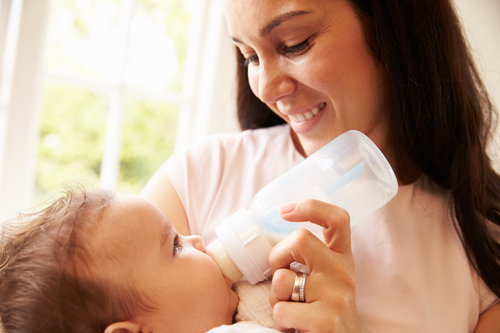Signs It’s Time To Replace Your Dentures
Dentures can be life-changing for those who have lost some or all of their natural teeth. A good quality denture can restore your ability to eat, speak, and smile with...

Your baby’s incoming teeth may not be permanent, but those baby teeth are just as vital to care for as the permanent ones that will soon-enough take their place. The first set of teeth infants and children obtain are important to protect because if they are lost too early, the teeth that are left may shift and not leave enough room for the adult teeth to come in.
Tooth decay in small children is the most common chronic infectious disease of childhood, and beginning healthy oral habits early on in your child’s life can have a big impact on the state of their lifelong oral health.
Most commonly occurring in the upper front teeth, baby bottle tooth decay is a condition that occurs when the natural sugars from liquids such as fruit juice or formula latch onto the surface of a child’s teeth for an extended period of time. The most common cause of tooth decay in infants is when a child is put to bed with a bottle each night over an extended period of time.
Prolonged exposure to these types of sweetened drinks allows acids to easily attach to the surface of the child’s teeth, causing them to decay. Tooth decay can also occur when a child frequently drinks anything other than water from a sippy cup or bottle either during the day or at night.
As with adults, the best way to prevent tooth decay in your little ones is by properly taking care of their teeth. Your child is susceptible to tooth decay from the moment their first tooth erupts out of their gum tissues, and proper oral hygiene should begin from their first tooth.
At the earliest signs of a problem, you and your child’s dentist can work together to manage and treat tooth decay for your child. You are your child’s best defense against worsening and untreated tooth decay, so watch for any of these signs including:
Any of these symptoms being shown in your child should be taken seriously. It’s imperative to see a dental professional as soon as possible if you suspect that your child is experiencing signs of tooth decay to avoid extensive restoration treatments and even infant tooth loss.
Have you scheduled your child’s first dental appointment? If the answer is no, schedule their first well-baby checkup with Dr. Baudean today to help keep their teeth and gums healthy.